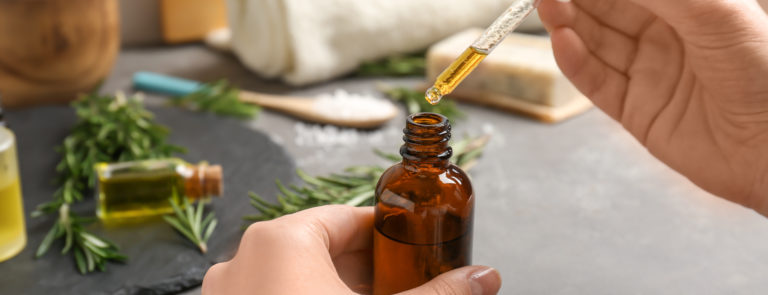20% off £30
Code:HB20
The 10 best home remedies to ease a sore throat

Here are 10 of the best at home and herbal remedies to ease a sore throat and help soothe some of that pain and irritation away.
Sick of the annoying, itchy, burning sore throats that seem to pop up at some point every year? Us too! That’s why we’ve put together a list of the 10 best sore throat remedies you can try at home when that uninvited, yet familiar, pain comes to visit.
What can cause a sore throat?
Sore throats are often caused by cold- or flu-like viruses or from smoking. Sometimes they can also be caused by bacteria.Why do you get a sore throat in winter?
There are several reasons why you may be more likely to experience a sore throat in winter, including:- Indoor heating, which makes the air dry
- Blocked noses from the common cold cause you to breathe more through your mouth, which can irritate your mucous membranes
- Cold and flu illnesses are more prevalent as our immune systems can take a hit during the colder months due to less sunlight (which creates vitamin D) and the fact that the cold virus transmits faster in the cold1
What can help a sore throat?
Wondering what the best sore throat remedy is? There are lots of time-tested remedies you can try without immediately booking in for a GP appointment. Here are 10 options you can try at home for a sore throat:1. Warm drinks with honey + other natural goodies
One of the best and easiest remedies for sore throats may already be in your kitchen cupboard. Honey is a natural wonder – especially when it comes to soothing dry, sore throats. When you combine a teaspoon or two of the sweet stuff with a warm cup of green tea or warm water and lemon it can be even more effective for calming your sore throat. Here’s how they work:- Honey: often referred to as the best thing for sore throats, the natural substance honey has been used for centuries to help with various conditions. Using honey for sore throats makes sense because it’s very soothing and full of natural antibacterial properties that can help to send your sore throat packing. If you want an even more powerful kick of goodness, opt for Manuka honey, which is even richer in antibacterial properties - read more about it here
- Tea / green tea: mixing honey with tea is a great way to stay hydrated, which is essential to recovering from a sore throat.2 Green tea is also a great source of antioxidants
- Lemon: lemons, like all citrus fruits, are a great source of vitamin C - a powerful antioxidant that supports the immune system. It tastes pretty good with honey and tea, too!
- Ginger: another great-tasting remedy for sore throats is ginger, which has been used extensively for centuries by people across the world to soothe sore throats3
2. Gargle with salty water
One treatment that the NHS recommends for soothing adult’s sore throats and shortening their duration is gargling with salty water. Here’s how to do it:4- Stir in half a teaspoon of salt into a glass of warm water until it’s dissolved.
- Gargle with the sea salt and then spit it out – make sure you don’t swallow it.
- Repeat as often as you like.
3. Try an air humidifier
Swollen tissue in your throat and nose can be soothed by breathing in moist air, which you can create with a cool mist humidifier. This is one of the most popular sore throat remedies, so you can find them in a lot of department stores and online.4. No humidifier? Use your shower instead
Moist air is created in your shower too, so shut your windows and bathroom door to let the room get all steamy. Then focus on deep inhales and exhales while you’re enjoying your shower to feel the benefits of all that moist air. A similar steamy bathroom activity you can do to relieve throat pain is to run the hot tap until it is very hot and fill up the sink. Once it is about ¾ full, put a towel over your head and lean over the sink to breathe the steam in. Relax there for a minute or so and repeat as often as you like. Another way to inhale some moist air is to boil some water in a pot over your stove with a few drops of menthol ointment or similar essential oils like peppermint and spearmint. Then take it off the hob when it starts to get all steamy and stand close by (at a safe distance!) to inhale it all in.5. Try a natural lozenge
Looking for a sore throat pain relief you can take on the go? Traditional throat lozenges may be a good choice for you. You can simply pop a packet of handy lozenges in your coat pocket or bag and take one for sore throat relief on the go. Some of the most popular natural ingredients you can find in lozenges include:- Honey and Manuka honey: as we already discussed above, Manuka honey is both antibacterial and soothing for the throat. Taking a lozenge allows you to feel similar benefits to having a warm lemon and honey tea, but you can keep them in your pocket!
- Menthol and herbal: many herbs and natural oils have soothing properties and can provide temporary relief for that burning feeling in your throat. Menthol also helps to slightly numb the throat to give you a break from a sore throat.
6. Throat sprays
One of the most popular quick remedies for sore throats is a specially-designed throat spray. There are many over-the-counter sprays you can find that coat your throat with a thin protective layer to reduce hoarseness and swallowing pain. The Holland & Barrett Cough & Throat Spray contains honey, glycerin and other throat-soothing ingredients.7. Avoid smoky places and do no smoke
This may seem obvious but being in smoky environments and smoking can create or further aggravate already-sore throats. Some research into the immediate health effects of occasional smoking among young adults revealed that even smoking casually was linked to an increase in respiratory symptoms like sore throats, coughing and shortness of breath.5 Smoky environments like smoking shelters and walking close to congested road traffic can also irritate your throat, so avoid as much as possible, especially if your throat is already causing you discomfort.8. Eat soft and cool foods
Whether it’s some yogurt and honey for dessert or a tub of your favourite ice-cream, smooth and chilled foods can give you some relief from sore throats. Some foods best for sore throats include:- Cooked pasta with sauce
- Jelly
- Yoghurt with pureed fruits
- Fruit/vegetable smoothies
- Cooked vegetables
- Mashed potatoes
- Soups
- Milk/plant milk – warm it up in the microwave
- Ice lollies
- Ice cream
- Hard sweets
- Ice cubes
9. Echinacea and sage
The combination of echinacea and sage has been seen to work very well for sore throats, especially when it’s in spray form. One study of 154 people found that a sage and echinacea spray worked well to soothe sore throats.6 Try A. Vogel Echinaforce Sore Throat Spray. It has taken traditional herbal medicine ideas and put them in a handy nozzle and spray pump, formulated to relieve sore throats.10. Stay hydrated
One of the easiest home remedies for sore throats is making sure you stay hydrated. If you don’t drink enough to stay hydrated, then your body will struggle to produce the adequate mucus and saliva needed to keep your throat naturally lubricated. Try to up your intake of warm soup, teas and warm water with lemon and honey – if they have warming ginger in, even better! Make sure you don’t heat your soup or drinks up too much though, as burning a throat that’s already feeling delicate will be no fun at all. It’s also worth noting that alcohol and caffeine can contribute to dehydration, so make sure to enjoy in moderation – or avoid completely while you have a sore throat for faster recovery.What can I take for sore throats as pain relief?
As well as the home remedies suggested above, paracetamol and ibuprofen can help to relieve the discomfort and pain of a sore throat.7What to do for a sore throat when you’re vegan
Many of the suggestions above are vegan-friendly, but there is a big non-vegan ingredient staring us in the face – honey. So, what helps a sore throat when honey is off the table? Why not try some of the suitable options we’ve discussed in this article. Alternatively, we would encourage you to speak to your pharmacist or GP to find the best option for you.Sources
1 https://flucamp.com/why-do-we-catch-colds-winter/
2 https://uhs.umich.edu/strep
3 https://pubmed.ncbi.nlm.nih.gov/21929329/
4 https://www.nhs.uk/conditions/sore-throat/
5 https://pubmed.ncbi.nlm.nih.gov/19264863/
6 https://www.ncbi.nlm.nih.gov/pmc/articles/PMC3351972/
7 https://www.nhs.uk/conditions/sore-throat/















